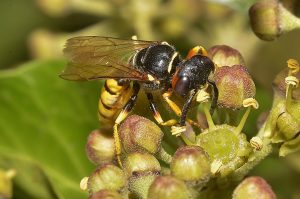Plans are being explored on further improving the hedgerow network in Rushcliffe to protect wildlife and help to tackle climate change.

Rushcliffe Borough Council is now working closely with partners to reach out to farmers and landowners to provide advice and support on managing hedgerows across the Borough.
Recognising that hedges have a positive effect for both wildlife and the amenity of residents, they play a vital role in carbon reduction and the authority has a strategic aim to increase the hedgerow network by 40% across the Borough by 2050.
It follows a national campaign by the Government’s Environmental Improvement Plan 2023, helping to tackle the climate emergency.
The Council has statutory regulations in place to protect hedgerows and the unauthorised removal of a hedgerow can result in a fine of up to £5000 and can enforce replacement planting.
Hedgerows are an important component of the Rushcliffe countryside and play a crucial role in protecting wildlife and provide food, shelter and linear routes for many species.
Bats navigate and feed along hedgerows and over 30 species of bird nest in them. Mammals also use the areas for shelter and ditches alongside hedgerows are home to a diverse range of invertebrates.
The Council’s Cabinet Portfolio Holder for Communities and Climate Change Cllr Abby Brennan said: “A wildlife-rich environment has been shown to provide health and economic benefits.
“As part of our Carbon Clever initiative and a step towards our plans to becoming carbon neutral by 2023, we are looking at ways we can further protect hedgerows.
“Most hedgerows are over 150 years old and they enhance the appearance and character of the Borough. They also provide homes and corridors for wildlife, crucial for biodiversity.
“We have hundreds of miles of hedgerow across the Borough and every single hedgerow is important for the environment. Many predate 1850 and we have measures in place to monitor and protect these areas.
“We want to engage with private landowners and farmers and we’re taking further action to build those relationships and work with our partners.
“There is Government support and other sources of funding available from The Woodland Trust, The Forestry Commission and more to assist with the maintenance and management of hedgerows.
“I encourage private landowners and farmers to find out more about these opportunities and utilise free tools and trusted resources on our website at www.rushcliffe.gov.uk.
“We also have a free guide to planting native hedgerows for residents”.
For further information on protecting hedgerows, including advice grant funding opportunities, visit our website pages.


